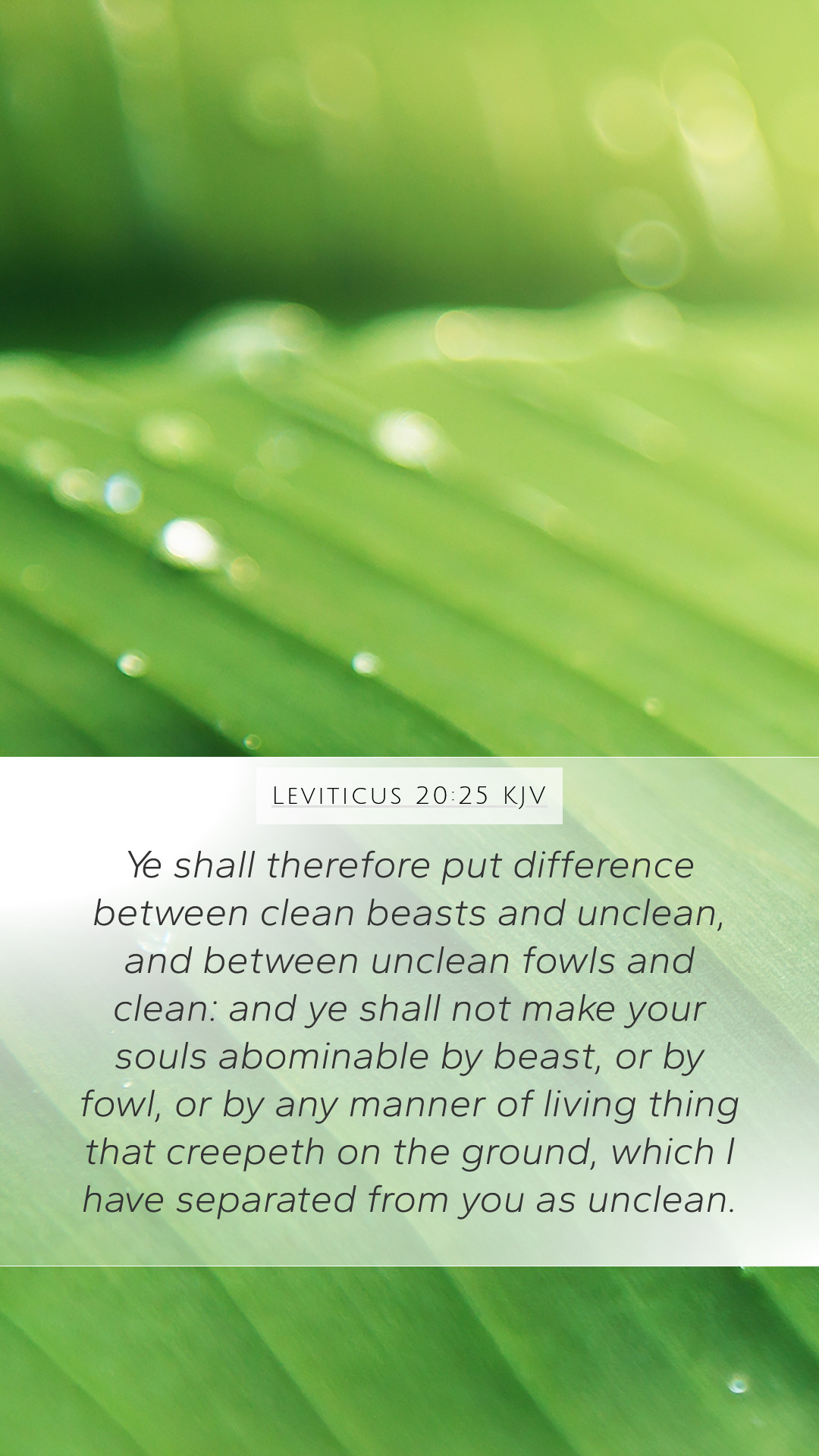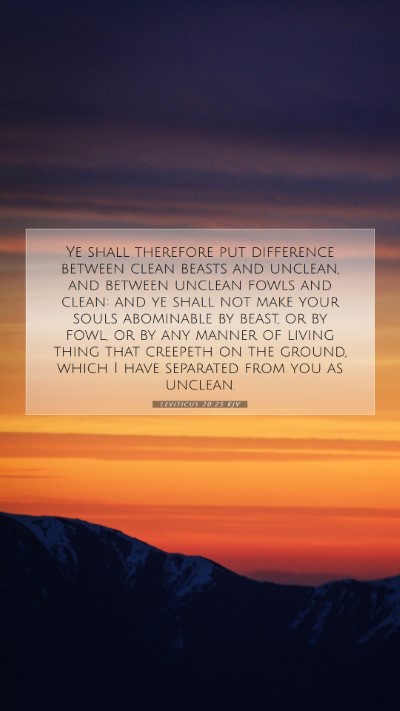Understanding Leviticus 20:25
Leviticus 20:25 states, "You shall therefore separate the clean beast from the unclean, and the unclean bird from the clean; and you shall not make yourselves detestable by beast or by bird or by anything with which the ground crawls, which I have separated for you as unclean." This verse emphasizes God's command to the Israelites regarding purity and separation from unclean animals. Within the context of Scripture, the implications of this command extend beyond mere dietary laws, highlighting themes of holiness and distinction in God's covenant relationship with His people.
Insights from Public Domain Commentaries
1. Matthew Henry's Commentary
According to Matthew Henry, this verse underscores the need for the Israelites to maintain a distinction between what is clean and unclean as a symbolic representation of their covenant relationship with God. The clean animals represent holiness and are acceptable for sacrifices, while unclean ones symbolize sin and separation from God. Henry notes that these distinctions were meant to cultivate spiritual discernment and encourage God's people to avoid the corrupting influences of the surrounding nations.
2. Albert Barnes' Commentary
Albert Barnes elaborates on the significance of these dietary laws by stating they were not merely about food but served as a divine classification system. Barnes emphasizes that God intended for His people to be holy as He is holy, thus mandating them to adhere to these regulations. The distinction signifies the separation required in worship, behavior, and lifestyle that reflects their identity as God's chosen people. The principles drawn from this verse encourage believers to consider their actions and affiliations in daily life, ensuring they align with biblical standards of purity.
3. Adam Clarke's Commentary
Adam Clarke also provides a multifaceted interpretation of this verse, explaining that the separation of clean and unclean animals served both physical and spiritual purposes. Clarke argues that such laws were meant to teach the Israelites valuable lessons about discipline, self-control, and the understanding of sin. By adhering to these distinctions, individuals were constantly reminded of their obligation to live according to God's standards and maintain a lifestyle that reflects His holiness. Furthermore, Clarke connects the underlying principle of purity with Jesus' teachings in the New Testament, where He expands on the concept of inner purity over external rituals.
Key Themes and Applications
- Holiness: The call to be holy as God is holy is a central theme in Leviticus and resonates with New Testament teachings as believers are called to reflect God’s character in their lives.
- Distinction: God’s people are to be distinct from the world; this calls for discernment in every area of life, including the moral and ethical choices we make.
- Obedience: Adhering to divine regulations fosters a spirit of obedience, which is essential for a strong relationship with God.
- Spiritual Symbolism: Clean animals symbolize purity and acceptance, while unclean represents sin, guiding believers to consider the implications of their spiritual choices.
Conclusion
In summary, Leviticus 20:25 encapsulates a divinely inspired directive that emphasizes the importance of holiness, separation, and obedience in the life of a believer. Understanding this verse encourages deeper Bible study insights, aiding individuals in applying biblical principles to their daily lives. When participating in Bible study groups or utilizing Bible study tools, one can reflect on the significance of purification and holiness as integral aspects of their faith journey. By exploring the meaning of Bible verses like this, one can gain a comprehensive view of God's call to His people throughout Scripture.
Related Bible Cross References
- Leviticus 11: Discusses clean and unclean animals.
- 1 Peter 1:16: "Be holy, for I am holy."
- Romans 12:1: Call to present oneself as a living sacrifice.


